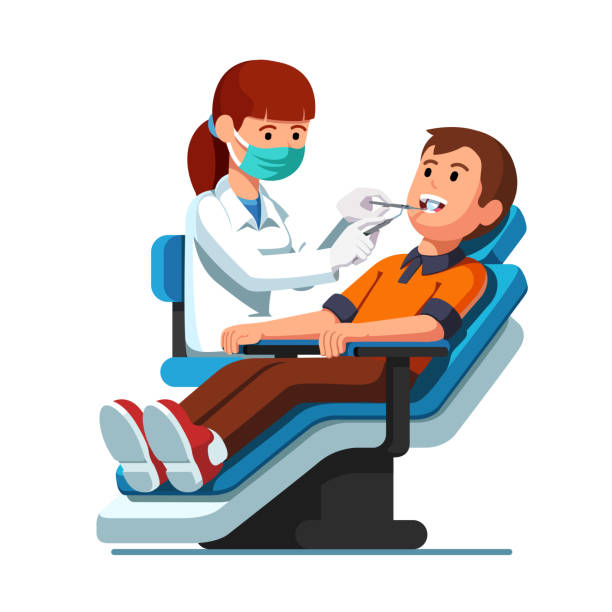Discover Common Dental Problems That Dentists Can Treat Effectively
Oral health is a crucial facet of general health, yet common problems such as cavities, periodontal illness, tooth degeneration, tooth sensitivity, and misaligned teeth often go unattended. Each of these conditions can significantly affect not only oral health and wellness however additionally day-to-day comfort and self-confidence. Improvements in dental treatment have actually made it feasible for dental practitioners to deal with these troubles successfully through different therapies. From routine cleansings and dental fillings to orthodontic treatments, the services readily available today are both accessible and thorough. What are the specific treatments available, and exactly how can they restore optimal oral health?
Dental Caries
They occur when the enamel, the tough outer surface of the teeth, is worn down by acids generated by germs in the mouth. These germs grow on sugars and starches from food and drinks, developing a sticky movie called plaque that adheres to the teeth.
Early-stage dental caries frequently go undetected as a result of the lack of signs and symptoms. Nonetheless, as the degeneration advances, people might experience tooth sensitivity, pain while drinking or eating, visible holes, and discoloration. Routine oral examinations are important for early discovery and administration of cavities. Dental experts utilize various therapies based on the extent of the decay, including fluoride therapies, fillings, crowns, and in serious situations, origin canals.

Gum Tissue Illness
Periodontal condition, likewise referred to as gum illness, is a prevalent problem that influences the tissues surrounding and sustaining the teeth. It primarily occurs because of the build-up of plaque, a sticky film of germs that creates on the teeth. If not gotten rid of through routine brushing and flossing, plaque can harden right into tartar, which can only be gotten rid of by a dental professional.
There are 2 main phases of gum disease: gingivitis and periodontitis. Gingivitis is the first, milder type, characterized by red, swollen periodontals that may bleed quickly. At this phase, the problem is normally reversible with appropriate oral hygiene and professional dental cleansings. If left neglected, gingivitis can advance to periodontitis, a much more severe form that can result in loss of the bone that supports the teeth.
Periodontitis includes deeper infection and swelling of the periodontals, triggering the gums to draw away from the teeth and develop pockets that can end up being infected. Therapy for periodontitis usually includes scaling and root planing, a deep-cleaning procedure to eliminate tartar and germs from beneath the gum tissues. In even more sophisticated cases, medical interventions might be needed to recover periodontal and bone health. Routine oral examinations are necessary for early discovery and efficient management of gum condition.
Dental Caries
Tooth decay, a common oral issue, manifests when the hard surface area of the tooth, called enamel, is damaged by acids created by microorganisms in plaque. This process starts when sweet and starchy foods are consumed, offering a breeding place for bacteria. These microorganisms metabolize the sugars to produce acids, which subsequently wear down the enamel, resulting in tooth cavities.
Originally, tooth decay may be asymptomatic, but as it proceeds, it can lead to visible holes or pits in the teeth, toothache, and sensitivity to hot, chilly, or wonderful compounds. If left neglected, the decay can penetrate much deeper layers of the tooth, reaching the dentin and ultimately the pulp, triggering serious pain and possibly leading to abscesses or infections.

Tooth Sensitivity

The underlying reasons for tooth level of sensitivity are differed. Usual aspects include enamel erosion because of aggressive brushing, acidic food consumption, or dental problems such as gum tissue economic crisis and dental cavity. Exposed dentin, the layer under the enamel, allows outside stimulations to get to the nerve endings, resulting in discomfort.
Dental professionals can efficiently treat tooth sensitivity with different interventions. In instances of extreme sensitivity, dental experts may apply bonding agents or advise treatments such as fluoride varnishes and sealers to shield exposed dentin.
Misaligned Teeth
Taking care of misaligned teeth is one more common concern in dental health, considerably affecting both aesthetic appeals and capability. Misaligned teeth, usually described as malocclusion, can arise from different factors, consisting of genetics, thumb-sucking throughout childhood years, or prolonged usage of a pacifier. This condition not just impacts the appearance of one's smile yet can likewise cause problems in eating, speaking, and keeping dental hygiene, raising the risk of tooth degeneration and periodontal illness.
Dental practitioners utilize a number of effective therapies to attend to misaligned teeth, see here now customized to the seriousness and specific demands of the individual. Conventional metal braces remain a commonly used Read Full Article option, particularly for intricate situations, as they gradually shift teeth right into the proper setting gradually. For those seeking a less obvious option, clear aligners such as Invisalign offer an even more aesthetic choice, supplying the very same corrective benefits without the exposure of metal dental braces. Additionally, orthodontic home appliances like retainers are necessary in maintaining the results post-treatment, avoiding teeth from moving back to their initial positions.
Early intervention is essential for ideal outcomes, making regular oral exams vital for resolving and recognizing imbalance problems quickly. Via customized therapy strategies, dentists can efficiently restore both the performance and look of an individual's smile.
Final Thought
In recap, resolving usual oral troubles such as tooth cavities, periodontal illness, dental caries, tooth level of sensitivity, and misaligned teeth is vital for maintaining oral wellness and capability. Dental practitioners are outfitted to identify and deal with these issues efficiently via different interventions, consisting of dental fillings, cleanings, orthodontics, and preventative treatment. Timely and suitable therapy can minimize the risks linked with these dental problems, thereby improving general dental wellness and lifestyle.
Oral health is an important element of general health, yet usual concerns find such as dental caries, gum tissue disease, tooth decay, tooth level of sensitivity, and misaligned teeth frequently go neglected.Tooth decay, a common dental problem, materializes when the difficult surface of the tooth, understood as enamel, is damaged by acids created by bacteria in plaque. Preventative actions such as normal dental check-ups, good oral health practices, and a balanced diet regimen are vital in reducing the threat of tooth decay.
Common factors include enamel disintegration due to hostile cleaning, acidic food usage, or oral problems such as periodontal economic downturn and tooth decay.In summary, dealing with typical dental problems such as dental caries, gum illness, tooth degeneration, tooth sensitivity, and misaligned teeth is essential for keeping oral wellness and functionality.